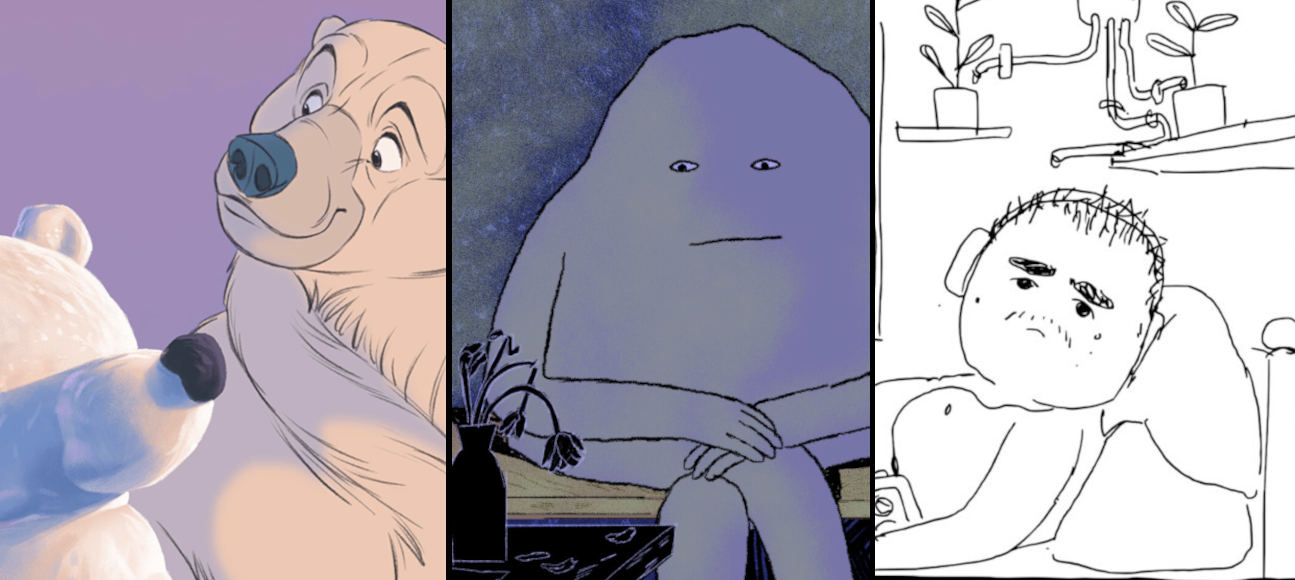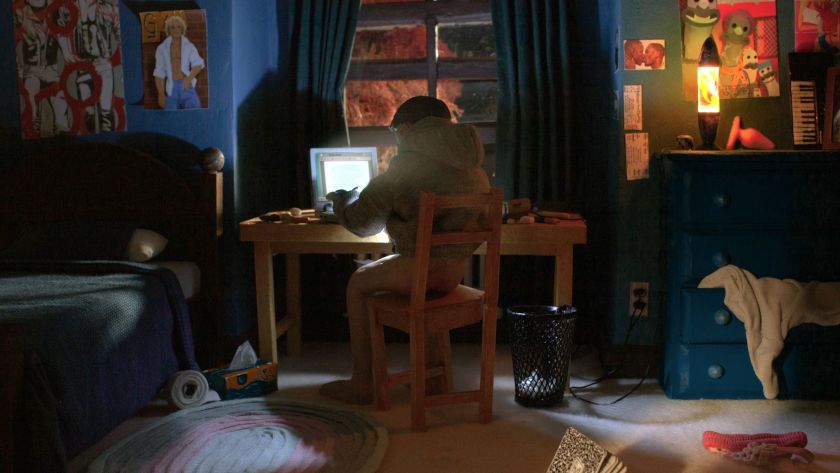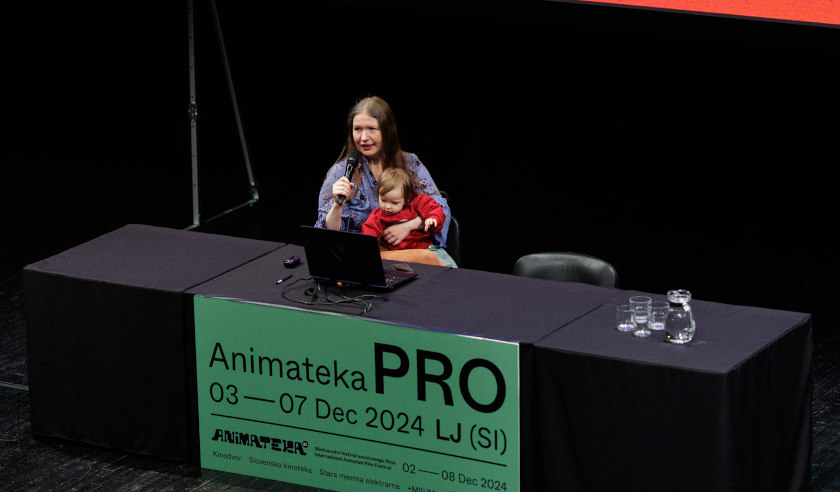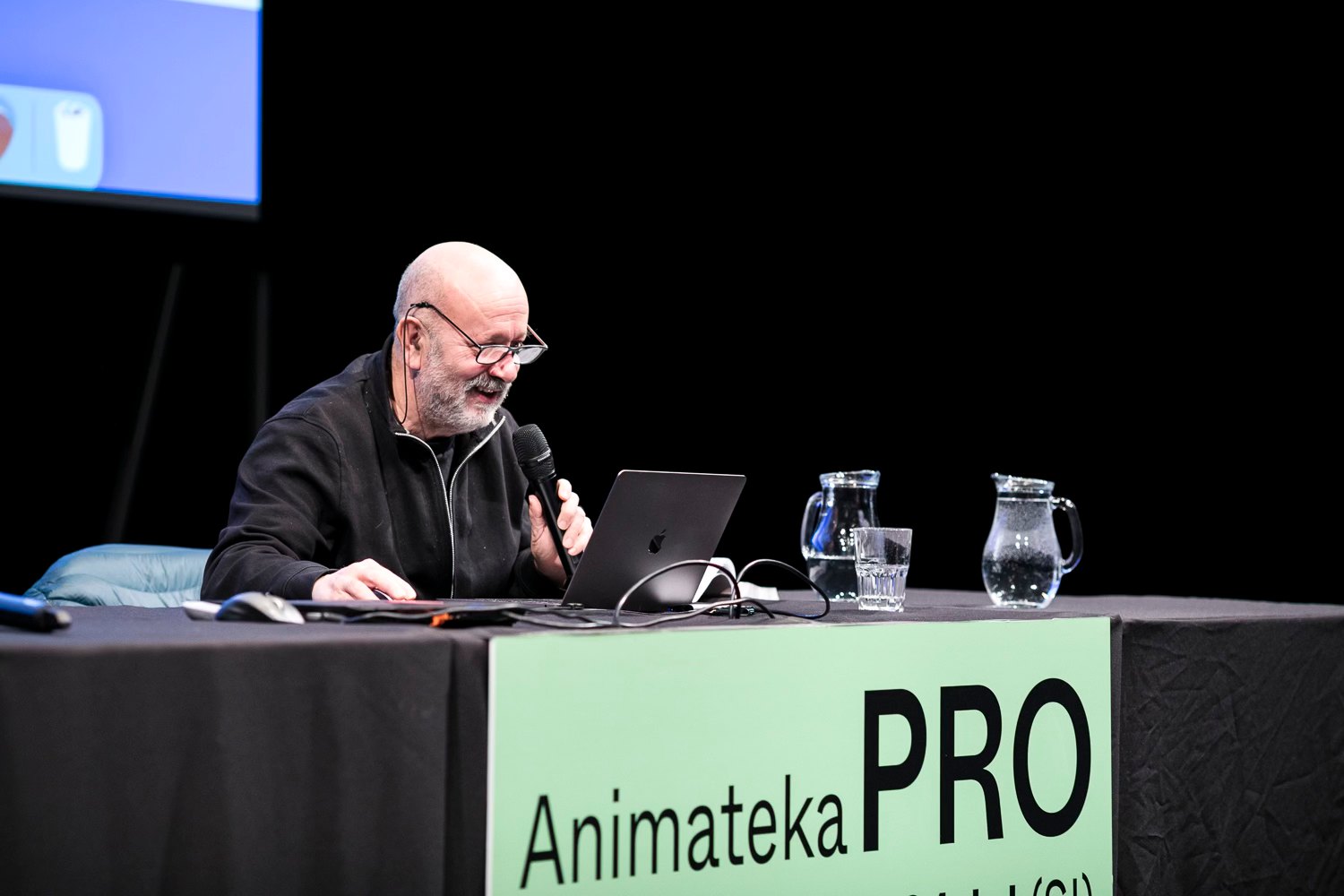How Balázs Turai Went From Censored Political Animations to the Festival Hit ‘Amok' (GoCritic! Review)
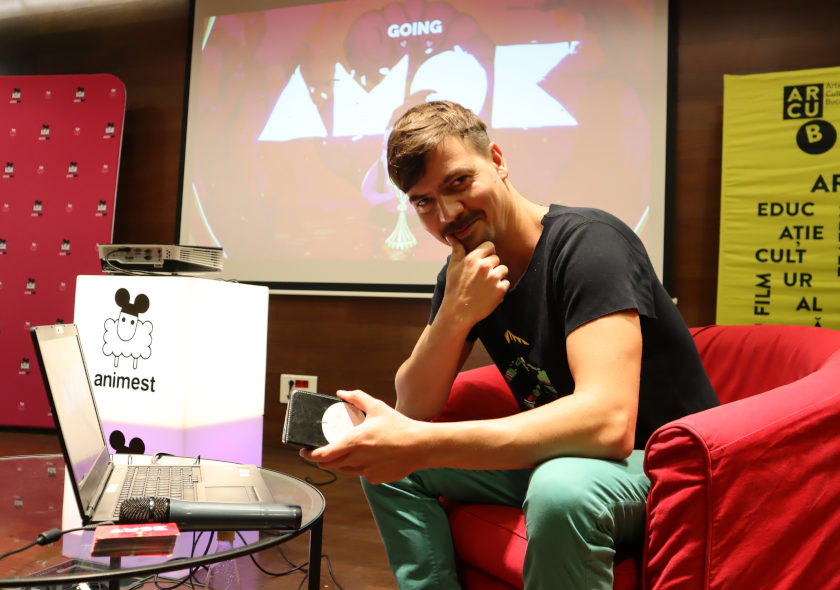
Hungarian filmmaker Balázs Turai won awards at both Annecy and Sarajevo this year with his latest short, Amok, which definitely put him on the European filmmakers’ map. But Turai is hardly a newcomer to animation: at Animest he sat on the main jury and he also delivered a masterclass outlining how he got to where he is now.
A long time ago, Turai was sitting in a graduation film ceremony, and, for most of the screening, he felt like what he was seeing was all much of a muchness. Suddenly, the screen turned bright pink and he finally perked up, expecting something exciting. But it turned out to be nothing more than a projector glitch. This particular viewing experience made Turai reflect on what it meant to him and, as he explained in his masterclass, he concluded that he wanted “to do things that are at least as interesting as a projector malfunctioning”, which made the audience burst out laughing.
Intensely introspective, it’s no wonder, then, that Turai’s approach to the rather unfavorable reviews and festival life of his first short film, 'The Fall of Rome' (2018) - a 24- minute sci-fi inner-world exploration - was to gather together the movie’s feedback and make use of it in future projects. Despite winning an award at Animafest Zagreb, the film was described as “not contemplative enough”, “too intense”, “too long” and with “too much dialogue in a foreign language”. He says that these comments became a guidebook for his next short film, 'Amok'.
A graduate of Brussels’ École de Recherche Graphique and Budapest’s MOME, Turai began the masterclass by recalling how complementary these two schools had been to his own evolution as a filmmaker: the former imbued him with the idea of the artist’s social and political responsibility, while the latter afforded him more practical skills in the realm of software wizardry, which he still applies to this day in his projects. He also mentioned working for a software company as a time of learning, not only in terms of practical Adobe Flash skills, but also in developing a work ethic that would later ensure he finished projects: “You can be a perfectionist endlessly, or you can decide at a given moment that the project is good enough,” he explained.
The field of animated series was Turai’s main playground before his two festival-winning shorts. His first such venture was a 13-episode adaptation of Voltaire’s 'Candide', a project which was initially greenlit by the Hungarian Film Fund. But, despite the team delivering the exact content they’d promised three years earlier, the series met a similar fate as Voltaire’s novel in the writer’s time: censorship.
Eventually, in order to avoid returning the entire sum allocated to them, the team had to “self-correct” and amend those details which seemed to aggravate the selection committee. But once the new version was accepted, one of the producers was declared bankrupt while the other emigrated, and the series remains unseen. “This series is kinda buried, and it’s only in Hungarian, but maybe one day it will resurface”, he said, not seeming bitter but a little disappointed.
He nonetheless carried on with the series format, stepping into political parody territory and deciding to do a bit of work for a YouTube channel run by a Hungarian opposition media outlet called Partizán. 'Oligarchy' consists of short, animated reactions to politics and policies in Hungary, but without subtitles for international audiences. During his masterclass, Turai shared an episode without dialogue about how “the government is transforming shared natural and vacation spaces into some new kind of neo-liberal urbanistic craziness,” something many Eastern European members of the audience could easily identify with.
Thematically, Turai’s work is deeply rooted in his lasting interest in Jung’s work. Specifically, he blends the archetype of the shadow with the writings of Hungarian psychologist Peter Popper, whose work includes the notion of the romantic break-up as a type of metaphorical murder. Both ideas are central themes in 'Amok'. It was this kind of thinking that led to the film, in which, according to Turai, the main character is “a kind of a serial monogamist depicted as a serial killer pursued by his gnome shadow.”
The film’s title, the director explained, comes from Malay, from a term which the English colonists gave to an observable albeit inexplicable Malaysian behavior, whereby an otherwise totally calm and friendly individual would suddenly snap and set out on a killing spree until they either killed themselves or were snuffed out by others. Amok very much hones in on this idea of the main character overcome with sudden madness, which elicits confusion in the viewer but also quite a few laughs, thanks to the film’s ample irony.
Although it proved difficult for to find finance for Amok, Turai put a humorous spin on it. The slide he showed the audience described the Hungarian Film Fund as saying a hard “nem”, the French CNC a more polite “non, merci”, while the Romanian CNC replied with an enthusiastic “da”. They gave Turai the support he needed so that he could spend the next three years writing, going over more than a hundred animatic versions, and fine-tuning the film so that he could finally reach that happy place where he deemed the movie “good enough.”
What’s next for Turai? 'Dino Doom on Desert Planet', is a feature-length sci-fi animation that he’s currently in the process of rewriting as part of a residency in Annecy. If Amok, Fall of Rome, and his political cartoons are any indications of what’s to come, we’re in for a complex, challenging and fulfilling experience.
contributed by: Oona Darie
Balázs Turai mage photo credit: Costin Drăghici. Animest International Animation Festival took place from 7 to 16 October 2022 (Bucharest, Romania). GoCritic! Training Programme 2022-24 is conducted under the Animation Festival Network Organization.
d




